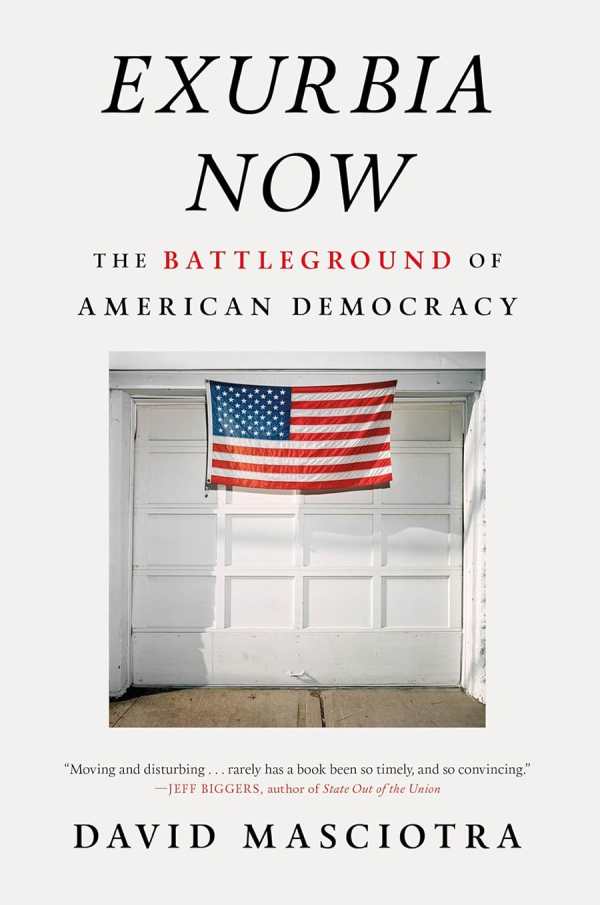Exurbia Now
The Battleground of American Democracy
Cultural critic David Masciotra’s newest book Exurbia Now is a timely appraisal of an American political landscape marked by dangerous isolation.
Drawing on trends in demographics, city planning, and social life, Masciotra describes a growing segment of Americans who leave behind their pluralistic suburbs for more secluded lives in “exurbs.” This change is not only geographic but cultural: by siphoning themselves off from active communities, exurbian Americans become susceptible to paranoia, political radicalism, and even violence. In exploring the makeup of exurbs, Masciotra also explores their consequences for the culture at large, from nationalistic churches to the glut of dangerous “masculine” vehicles appearing on highways.
This is a well-rounded, panoramic treatment of American cultural life, with quotes from singer-songwriters and praises toward small-town craft beer culture factoring in. It exults in all manner of grassroots organizing and creativity, as well as the eclectic character of the communities it describes. Indeed, its defense of local cultures is moving and infectious. Such sketches of flourishing communities serve as a foil to the deadening influence of exurban isolation, helping the book to end on a note of hope rather than despair.
Exurbia Now tackles disturbing developments in America’s fraying outskirts with painful accuracy, but it also keeps its most volatile subjects at arm’s length. It makes free use of charged appellations like “fascist” and imputes uncharitable motivations to its conservative subjects. While this doesn’t hinder its large-scale analyses, it does lead to imbalances: the book’s portrait of progressive cosmopolitan culture is enlivened by intimate profiles; its treatment of conservative exurbia is drier and more reliant on statistics.
Exurbia Now is an urgent work of political analysis that treats small-town life as the center of the battle for American national identity.
Reviewed by
Isaac Randel
Disclosure: This article is not an endorsement, but a review. The publisher of this book provided free copies of the book to have their book reviewed by a professional reviewer. No fee was paid by the publisher for this review. Foreword Reviews only recommends books that we love. Foreword Magazine, Inc. is disclosing this in accordance with the Federal Trade Commission’s 16 CFR, Part 255.

